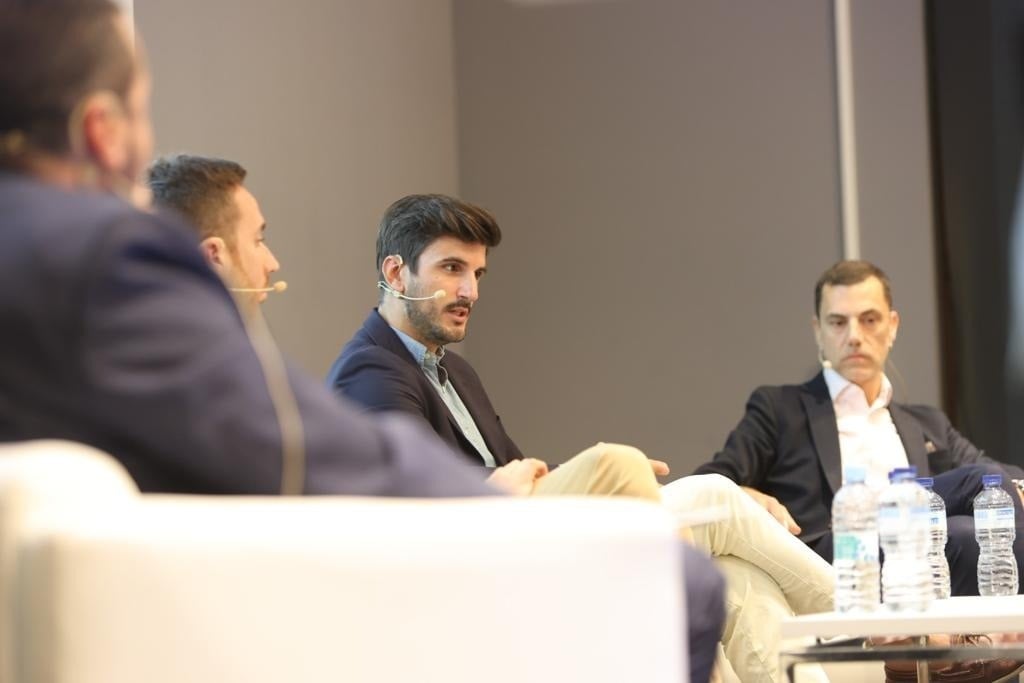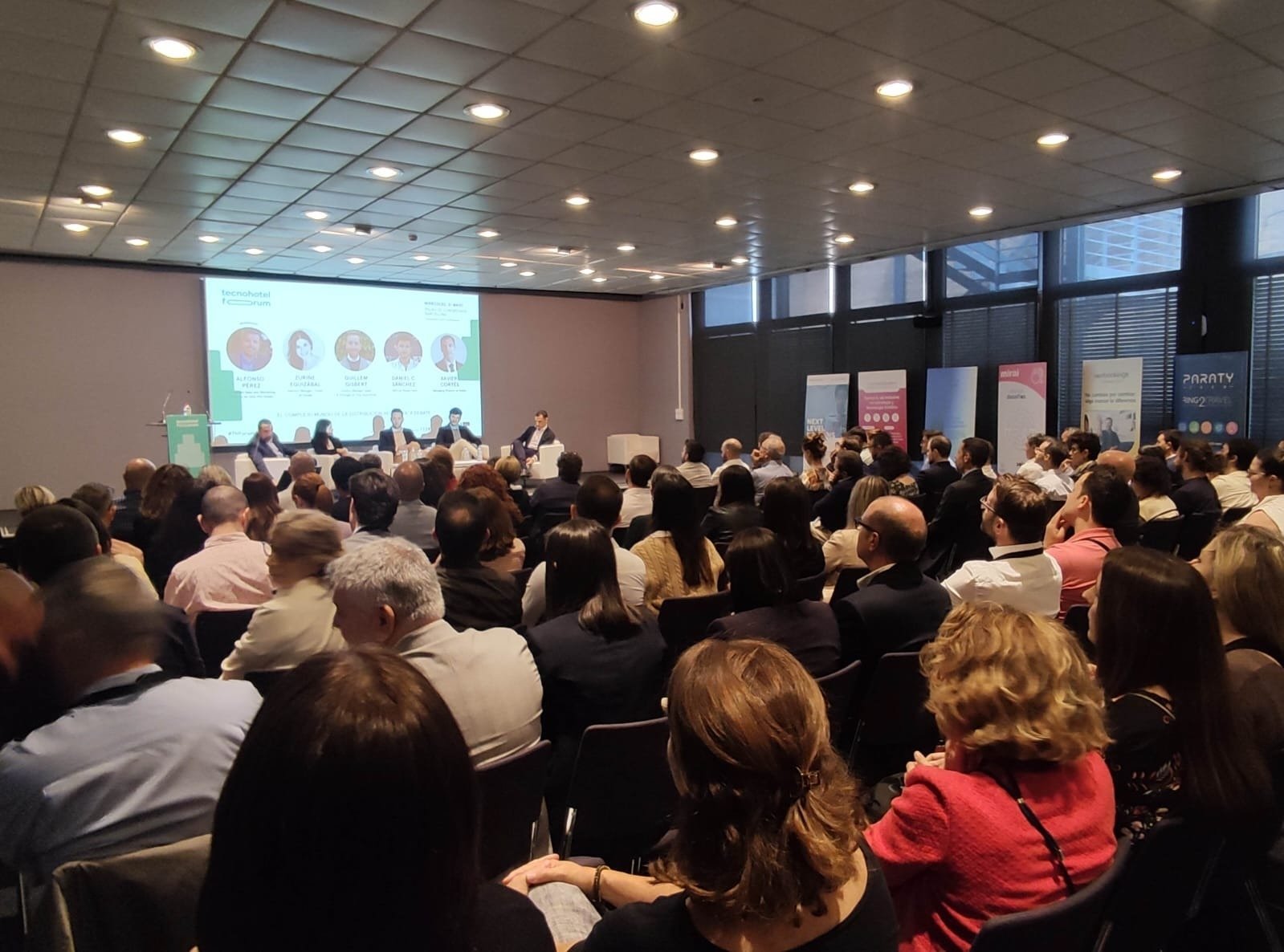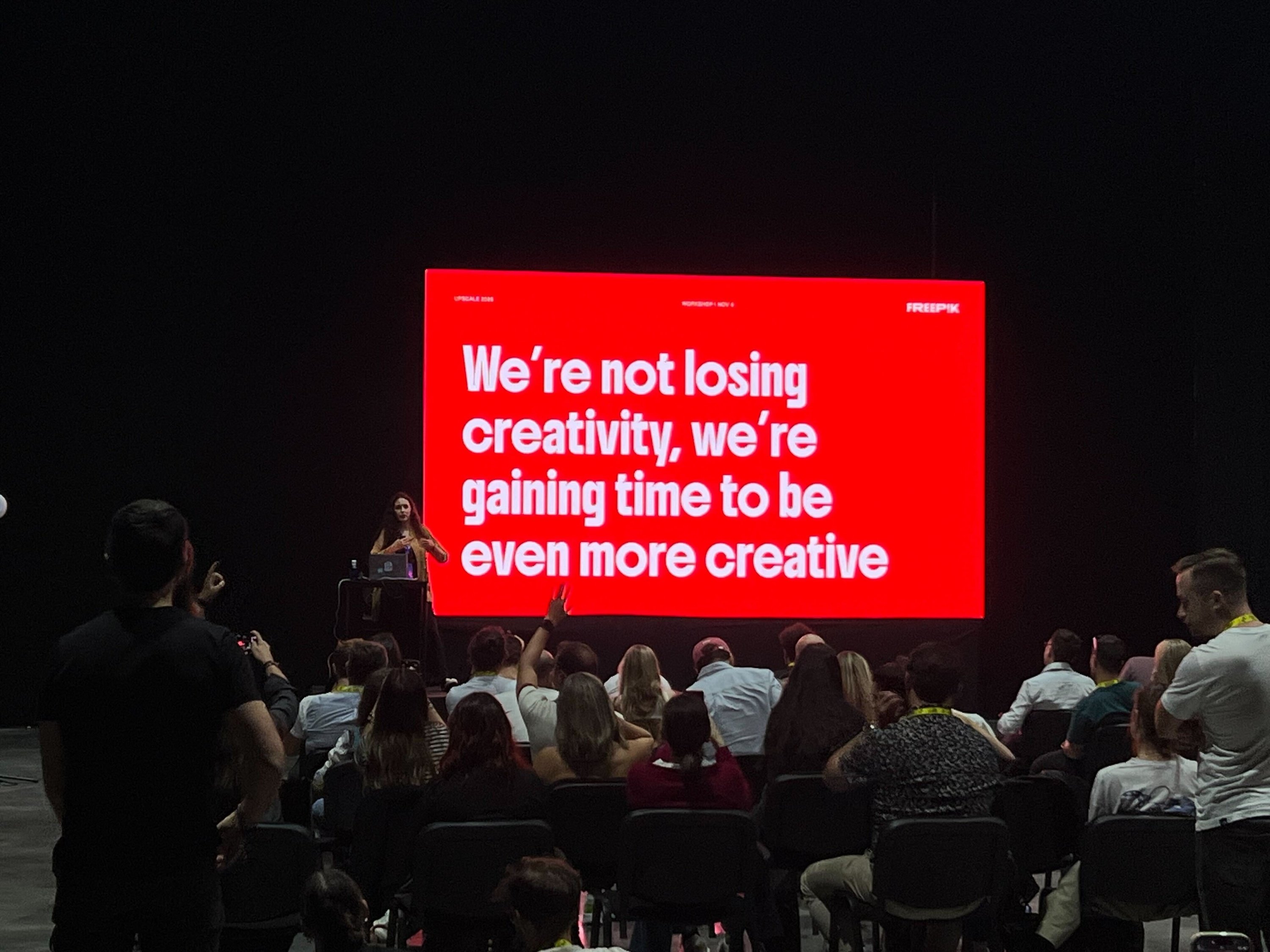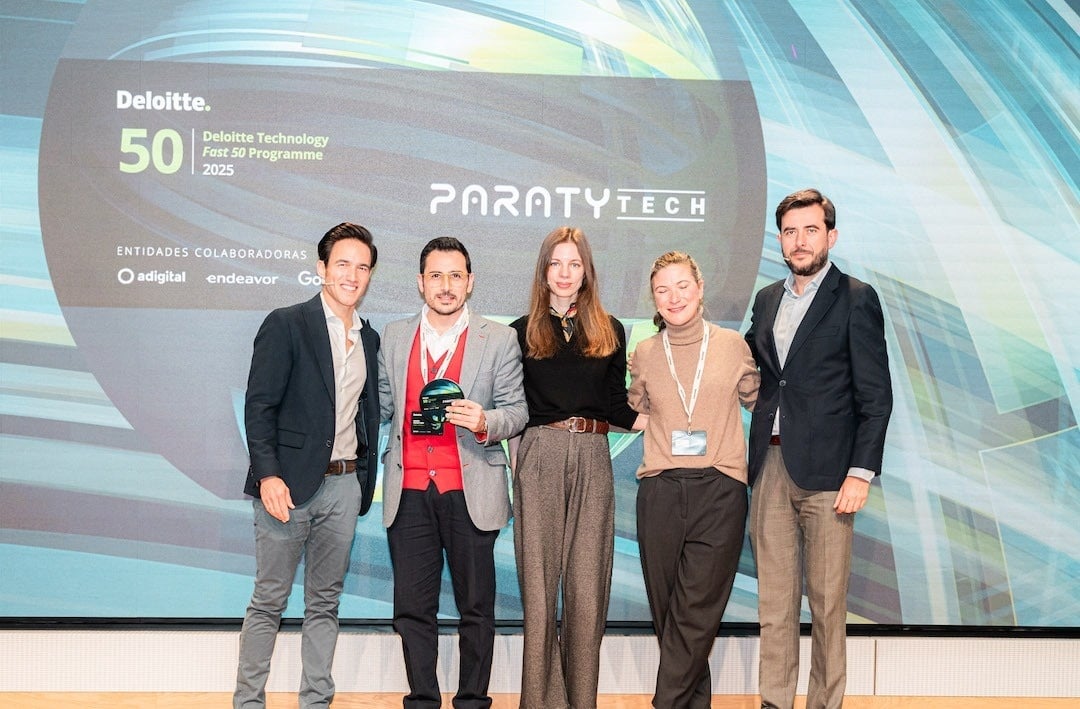17 min read
TH Forum: the complex world of hotel distribution, up for debate
One of the highlights of the first day of the TecnoHotel Forum was the panel The complex world of hotel distribution, under debate , in which we had the pleasure of participating, represented by Daniel Sánchez , Chief Revenue Officer of Paraty Tech . From the start, he had it all, and he did not disappoint. Accompanying our colleague was a daring, funny, expert and hotelier moderator, committed, between laughs, not to mention the word "parity", for a matter of principle and maturity ( Alfonso Pérez , from Only YOU Hotels), a representative of the company that owns the metasearch engine that has grown the most in recent years ( Zuriñe Eguizábal , from Travel at Google), a specialist in one of the most anticipated markets and with the greatest projection for the future ( Guillem Gisbert , from Ctrip) and a true heavyweight in hotel distribution ( Xavier Cortés , from Keytel).
On the table, the most diverse topics and of great interest to hoteliers, especially taking into account that we are facing a rarefied scenario, in which a long period of increased demand, with a customer willing to pay more, It collides head-on with a slowdown in the rate of reserves over the last few weeks and an economic context still marked by an always threatening inflation. The order of the day was established:
Although, as we have already mentioned, we are experiencing a period of excess demand, the reality is that this is not the case in all markets and, depending on the destination, these indicators behave unevenly, making it necessary to resort to a mix of channels more varied and appropriate to the destination, without failing to take advantage of the billboard effect of large companies such as Booking.
![]()
Daniel Sánchez , Chief Revenue Officer at Paraty Tech , confirmed that "in Spain, the ones that continue to pull the bandwagon the most are the UK, Germany, the US and France" . The rest of the markets represent more residual percentages and to capture demand you have to spend more, knowing that the ROI will be lower. And, although it seems that only digital marketing formats are valued, Daniel assures that "things go beyond online marketing" and that "in certain markets it is essential to have a physical presence".
To the million dollar question, Daniel responded forcefully: less little birds in the head, more building a good foundation . Immediately afterwards, he finished explaining himself: "The motor always goes to our heads, but there is an offline part, the telephone, which does not stop growing, especially in vacations, in which important disbursements are made, and the telephone builds trust."
There is no magic formula to sell a lot, but there are some minimums that must be met: "Have a good price, develop a 360 strategy, invest in marketing, be well positioned... start rolling with this and, from there, think about incorporating some of the multitude of add-ons that exist. We have reached a point where the engine and the web are now just commodities, what is important is everything that surrounds it: loyalty, crm, Wi-Fi connection… the options are endless”.
The thing was to obtain irrefutable answers, universal truths, in which to take refuge to increase profitability. However, the goose that lays the golden eggs exists only in stories. An important step, in terms of online marketing, is to assume that investments are being made, not expenses, because there is always a return. For this reason , "there is no need to put a ceiling if the ROI is good, because limited budgets limit the hotelier". Everyone seems to already agree that direct sales can end up being as expensive as brokered ones, "but, even if it ends up costing us 15 or 18%, it will always be more interesting to sell direct than through an OTA". For this reason, Daniel advised to stop thinking in net amounts to start working with “floating budgets, and establish an affordable cost translated into a percentage”.
Despite the fact that in May the volume of international searches grew by 60% and that of reservations by 40%, perhaps the number of Chinese visitors is still not as expected. Something that Guillem Gisbert, Country Manager Spain & Portugal at Trip.com/Ctrip, who is confident that 2024 will be the year of full recovery for this market, attributes to different factors: "China has suffered the biggest lockdown in the world, although its de-escalation has also been faster than that of any other country. Just like in Europe, now that borders have just been opened, they are traveling mostly locally, to the places they know and where they feel comfortable. But it is also that there are handicaps that condition international travel, "we must recover the air routes and solve the issue of visas," he says.
Like the rest of the speakers, Guillem agrees on the importance of knowing the particularities of each market in order to be able to offer travelers the product they want, through the channels in which they feel comfortable, just when the one who demand it. But when we refer to the Asian market, and more specifically, to the Chinese one, this question directly becomes one of the most important.
There you can't kill flies with cannon shots. It is not enough to make a literal translation of our website into your language and wait for reservations to start coming in. Of course, there is the issue of language, but also that of influencing those issues that are most interesting to them, in offering them the payment methodologies that generate confidence: "with them, credit cards are not going to work, translating for the sake of translating It's not going to work either, you have to go further, have someone who speaks the language, maybe set up a Chinese breakfast corner, get to know their needs well, those of each existing profile”. For example, "the generation of the only child is the one that is now traveling the most and has the greatest purchasing power," he says. Not surprisingly, China has 1.4 billion potential tourists, but only 150 million have high purchasing power: "It's about making Spain a top of mind destination for Chinese customers," he concludes.
The presence at the table of Zuriñe Eguizábal, Industry Manager at Travel at Google, had also generated great interest. Due to the position he occupies within the American giant, Zuriñe has access to an infinity of data associated with the travel sector. Circumstance that, from the start, allowed him to begin by stating that "hotel demand is growing at double digits in most of the key markets". In his opinion, the pandemic has brought about a great change in people, in all of us, and now we appreciate living experiences more. A circumstance that continues to have a direct impact on tourism, "a vertical that grows more than other verticals".
Again very aligned in his answers with many of the opinions of his panelmates, Eguizábal insisted that "it is important to understand which market you are targeting and adapt your recruitment strategy", and he attributes a good part of the success of Google Hotel Ads, one of the goals that has grown the most in recent years, due to its versatility: "There are different strategies depending on the objective: increase traffic (invest in clicks), generate reservations (CPA), profitability (capture reservations from a minimal return) .
All players invest in metasearch engines and bid for the same terms as hotels, including even their own brand. A practice as unethical as widespread. Competing with giants like Booking or Expedia as a brand defense strategy is profitable, as commented by moderator Alfonso Pérez, Corporate Sales and Marketing Senior Director at Only YOU Hotels. However, he was wondering how to compete with the multi-million dollar investments of other players in generic search. As our CRO already said, the Google representative spoke of assuming a "structural and financial change" and asking herself "how much am I willing to pay for a direct sale by brand, and how much for one from someone who doesn't know me" because, Obviously, we are talking about a very different investment volume.
Xavier Cortés, Managing Director at Keytel , was expected, above all, to shed some light on the complex (or not so complex) world of current hotel distribution, in which, in his opinion, "there is a loss of control, due in part to the redistribution exercised by all the actors. The hotelier perceives and is aware of this reality, which has led him to bet on the channel that makes the most sense, direct. The truth is that this loss of control translates into a generalized lack of traceability, and the direct channel is the exception that confirms the rule.
The pandemic was a turning point in distribution. As a consequence, the hotelier has reduced channels and there the direct channel has taken advantage, but it has not been the only beneficiary of this situation, as Xavier highlighted when he assured that "the great winner of the Pandemic has been Booking" .
Cortés also shared that feeling of slowdown in reserves in recent weeks: “Europe has behaved very well until this last week, in which there are certain flattening indicators. Internationally, the Latin American market offers very good prospects (especially Brazil, Mexico, Argentina) and the Middle East is also doing very well. It is also hopeful that next year we can once again count on the Chinese market and India, a country with even greater possibilities of adapting in the short term, with fewer cultural and technological barriers". highlight the determining role played by knowledge of the different markets: “Understanding the markets will allow us to diversify better” .
There are markets with a very important offline component. The Latin American, for example, which is controlled by a few operators, and some global player as well. In fact, on occasions, the fact that the two large OTAs are present in certain markets leads us to think that they are enough, but it is a mistake: "It makes us depend, especially at a time like the present, of overdemand, in which everything seems easy. However, when there is a correction in the demand, that is when you see if I have really done my homework."
In short, the key is to manage not to give up any market, to any segment, and it is not just a question of reducing channels, but of finding the ones that generate value for me in each market.
It is on everyone's lips and, who else, who less, everyone has an opinion about it, including the participants in this interesting table in which practically nothing was left unanswered.
![]()
While Daniel Sánchez was convinced that, in terms of direct sales, "the possibilities of AI are endless" (for content generation, to work on SEO, etc.), Xavier referred to generative AI as "the future of the way to search for trips” and to the blockchain as a technology with “a long way to go” . For his part, Zuriñe spoke of the possibility of "colliding the data we have with that of the hotel's own CRM to find the most profitable customer, who is most interested, and thus end up paying for each channel based on the value it generates, not not just today, but 5 years from now." Lastly, Guillem recognized that Ctrip is already integrated via API with OpenAi (Chat GPT), both internally and at the user level, which translates into greater ease when searching, to they avoid leaks in search of additional information.
On the table, the most diverse topics and of great interest to hoteliers, especially taking into account that we are facing a rarefied scenario, in which a long period of increased demand, with a customer willing to pay more, It collides head-on with a slowdown in the rate of reserves over the last few weeks and an economic context still marked by an always threatening inflation. The order of the day was established:
- What role will the Asian market play next and when?
- Why invest in Google Hotel Ads
- How to sell more through the direct channel
- What are the potential and emerging markets
- Omnichannel
- Artificial intelligence
Less little birds in the head, better foundations
Although, as we have already mentioned, we are experiencing a period of excess demand, the reality is that this is not the case in all markets and, depending on the destination, these indicators behave unevenly, making it necessary to resort to a mix of channels more varied and appropriate to the destination, without failing to take advantage of the billboard effect of large companies such as Booking.

Daniel Sánchez , Chief Revenue Officer at Paraty Tech , confirmed that "in Spain, the ones that continue to pull the bandwagon the most are the UK, Germany, the US and France" . The rest of the markets represent more residual percentages and to capture demand you have to spend more, knowing that the ROI will be lower. And, although it seems that only digital marketing formats are valued, Daniel assures that "things go beyond online marketing" and that "in certain markets it is essential to have a physical presence".
What do we have to do to sell a lot through the direct channel?
To the million dollar question, Daniel responded forcefully: less little birds in the head, more building a good foundation . Immediately afterwards, he finished explaining himself: "The motor always goes to our heads, but there is an offline part, the telephone, which does not stop growing, especially in vacations, in which important disbursements are made, and the telephone builds trust."
There is no magic formula to sell a lot, but there are some minimums that must be met: "Have a good price, develop a 360 strategy, invest in marketing, be well positioned... start rolling with this and, from there, think about incorporating some of the multitude of add-ons that exist. We have reached a point where the engine and the web are now just commodities, what is important is everything that surrounds it: loyalty, crm, Wi-Fi connection… the options are endless”.
"There is no need to put a ceiling on investment in marketing"
The thing was to obtain irrefutable answers, universal truths, in which to take refuge to increase profitability. However, the goose that lays the golden eggs exists only in stories. An important step, in terms of online marketing, is to assume that investments are being made, not expenses, because there is always a return. For this reason , "there is no need to put a ceiling if the ROI is good, because limited budgets limit the hotelier". Everyone seems to already agree that direct sales can end up being as expensive as brokered ones, "but, even if it ends up costing us 15 or 18%, it will always be more interesting to sell direct than through an OTA". For this reason, Daniel advised to stop thinking in net amounts to start working with “floating budgets, and establish an affordable cost translated into a percentage”.
We hope that 2024 will be the year of full recovery of the Asian market
Despite the fact that in May the volume of international searches grew by 60% and that of reservations by 40%, perhaps the number of Chinese visitors is still not as expected. Something that Guillem Gisbert, Country Manager Spain & Portugal at Trip.com/Ctrip, who is confident that 2024 will be the year of full recovery for this market, attributes to different factors: "China has suffered the biggest lockdown in the world, although its de-escalation has also been faster than that of any other country. Just like in Europe, now that borders have just been opened, they are traveling mostly locally, to the places they know and where they feel comfortable. But it is also that there are handicaps that condition international travel, "we must recover the air routes and solve the issue of visas," he says.
Like the rest of the speakers, Guillem agrees on the importance of knowing the particularities of each market in order to be able to offer travelers the product they want, through the channels in which they feel comfortable, just when the one who demand it. But when we refer to the Asian market, and more specifically, to the Chinese one, this question directly becomes one of the most important.
There you can't kill flies with cannon shots. It is not enough to make a literal translation of our website into your language and wait for reservations to start coming in. Of course, there is the issue of language, but also that of influencing those issues that are most interesting to them, in offering them the payment methodologies that generate confidence: "with them, credit cards are not going to work, translating for the sake of translating It's not going to work either, you have to go further, have someone who speaks the language, maybe set up a Chinese breakfast corner, get to know their needs well, those of each existing profile”. For example, "the generation of the only child is the one that is now traveling the most and has the greatest purchasing power," he says. Not surprisingly, China has 1.4 billion potential tourists, but only 150 million have high purchasing power: "It's about making Spain a top of mind destination for Chinese customers," he concludes.
Hotel demand is growing at double digits
The presence at the table of Zuriñe Eguizábal, Industry Manager at Travel at Google, had also generated great interest. Due to the position he occupies within the American giant, Zuriñe has access to an infinity of data associated with the travel sector. Circumstance that, from the start, allowed him to begin by stating that "hotel demand is growing at double digits in most of the key markets". In his opinion, the pandemic has brought about a great change in people, in all of us, and now we appreciate living experiences more. A circumstance that continues to have a direct impact on tourism, "a vertical that grows more than other verticals".
Again very aligned in his answers with many of the opinions of his panelmates, Eguizábal insisted that "it is important to understand which market you are targeting and adapt your recruitment strategy", and he attributes a good part of the success of Google Hotel Ads, one of the goals that has grown the most in recent years, due to its versatility: "There are different strategies depending on the objective: increase traffic (invest in clicks), generate reservations (CPA), profitability (capture reservations from a minimal return) .
All players invest in metasearch engines and bid for the same terms as hotels, including even their own brand. A practice as unethical as widespread. Competing with giants like Booking or Expedia as a brand defense strategy is profitable, as commented by moderator Alfonso Pérez, Corporate Sales and Marketing Senior Director at Only YOU Hotels. However, he was wondering how to compete with the multi-million dollar investments of other players in generic search. As our CRO already said, the Google representative spoke of assuming a "structural and financial change" and asking herself "how much am I willing to pay for a direct sale by brand, and how much for one from someone who doesn't know me" because, Obviously, we are talking about a very different investment volume.
The distribution is not complex, the complex thing is to find a balanced distribution
Xavier Cortés, Managing Director at Keytel , was expected, above all, to shed some light on the complex (or not so complex) world of current hotel distribution, in which, in his opinion, "there is a loss of control, due in part to the redistribution exercised by all the actors. The hotelier perceives and is aware of this reality, which has led him to bet on the channel that makes the most sense, direct. The truth is that this loss of control translates into a generalized lack of traceability, and the direct channel is the exception that confirms the rule.
The pandemic was a turning point in distribution. As a consequence, the hotelier has reduced channels and there the direct channel has taken advantage, but it has not been the only beneficiary of this situation, as Xavier highlighted when he assured that "the great winner of the Pandemic has been Booking" .
Cortés also shared that feeling of slowdown in reserves in recent weeks: “Europe has behaved very well until this last week, in which there are certain flattening indicators. Internationally, the Latin American market offers very good prospects (especially Brazil, Mexico, Argentina) and the Middle East is also doing very well. It is also hopeful that next year we can once again count on the Chinese market and India, a country with even greater possibilities of adapting in the short term, with fewer cultural and technological barriers". highlight the determining role played by knowledge of the different markets: “Understanding the markets will allow us to diversify better” .
There are markets with a very important offline component. The Latin American, for example, which is controlled by a few operators, and some global player as well. In fact, on occasions, the fact that the two large OTAs are present in certain markets leads us to think that they are enough, but it is a mistake: "It makes us depend, especially at a time like the present, of overdemand, in which everything seems easy. However, when there is a correction in the demand, that is when you see if I have really done my homework."
In short, the key is to manage not to give up any market, to any segment, and it is not just a question of reducing channels, but of finding the ones that generate value for me in each market.
What to expect from artificial intelligence?
It is on everyone's lips and, who else, who less, everyone has an opinion about it, including the participants in this interesting table in which practically nothing was left unanswered.

While Daniel Sánchez was convinced that, in terms of direct sales, "the possibilities of AI are endless" (for content generation, to work on SEO, etc.), Xavier referred to generative AI as "the future of the way to search for trips” and to the blockchain as a technology with “a long way to go” . For his part, Zuriñe spoke of the possibility of "colliding the data we have with that of the hotel's own CRM to find the most profitable customer, who is most interested, and thus end up paying for each channel based on the value it generates, not not just today, but 5 years from now." Lastly, Guillem recognized that Ctrip is already integrated via API with OpenAi (Chat GPT), both internally and at the user level, which translates into greater ease when searching, to they avoid leaks in search of additional information.
Recent posts
Key AI concepts every hotelier should know
Black Friday 2025: Ring2Travel's key role in strategy and results
Black Friday 2025: Data confirms the strength of the direct channel
We unveil the first step of the AI revolution at Paraty Tech
The end of the &num=100 parameter in Google: what it means and how it affects hotels











